Move so differently
that people can’t identify
what you are.
Space Monkey Reflects: The Fluidity of Identity
To “move so differently that people can’t identify what you are” is a bold invitation to transcend the boundaries of definition and expectation. It suggests that identity, far from being fixed or static, is fluid and ever-changing—a dynamic dance between being and becoming. By moving beyond the confines of categorization, we allow ourselves to explore the infinite potential of existence.
The Constraints of Identity
Identity is often seen as a cornerstone of individuality, but it can also act as a cage. Labels, roles, and expectations imposed by society create frameworks that, while comforting, limit our ability to grow and transform. To defy identification is to challenge these frameworks, to step outside the roles we are expected to play, and to redefine what it means to exist authentically.
When we move in ways that resist categorization, we disrupt the narratives others create about us. This disruption forces both us and them to confront the fluid nature of identity, revealing that the self is not a static construct but a living, evolving phenomenon.
The Power of Ambiguity
Ambiguity, often feared or misunderstood, is a powerful state of being. It challenges others to see beyond surface appearances and assumptions. To move so differently that others cannot identify what you are is to embody this ambiguity, to live as a reflection of the infinite possibilities within the human experience.
Ambiguity does not mean a lack of identity but a refusal to be confined by singular definitions. It is a statement that “what you see” is only one facet of an infinitely complex whole. This fluidity allows for deeper connections, as it encourages curiosity, openness, and the breaking down of preconceived notions.
Identity as Flux
In the nexistential framework, identity is not a fixed endpoint but a process of continual becoming. Like a river that reshapes its course over time, the self is shaped by experiences, choices, and the dynamic interplay of inner and outer forces. To embrace this fluidity is to recognize that identity is not something to be pinned down but something to be explored.
When we move differently—physically, mentally, or emotionally—we open new pathways for self-expression and understanding. These movements challenge us to see ourselves and others in new ways, fostering empathy and creativity.
Steps Toward Fluidity
- Release Expectations: Let go of the need to conform to specific roles or labels. Embrace the unknown and the undefined.
- Experiment with Expression: Try new ways of speaking, acting, or creating. Explore what feels authentic in the moment, even if it defies your usual patterns.
- Embrace Change: Accept that who you are today may not be who you are tomorrow. Growth requires adaptability.
- Challenge Assumptions: Both your own and those of others. Question the labels you’ve accepted and the ones you assign to others.
The Beauty of Mystery
To be unidentifiable is to embody mystery, a quality that draws people in and invites deeper exploration. Mystery is not about hiding who you are but about revealing the infinite depth of your being, layer by layer. It is an acknowledgment that no single label or story can encapsulate the fullness of existence.
In moving differently, you invite others to do the same. Your fluidity becomes a mirror, reflecting the infinite potential within everyone. Together, we transcend the boundaries of definition, moving not as fixed identities but as dynamic expressions of the universal self.
Summary
To move so differently that people cannot identify what you are is to embrace the fluidity of identity. By transcending labels and expectations, we open ourselves to infinite possibilities and deeper connections.
Glossarium
- Fluidity of Identity: The concept that identity is dynamic and ever-changing, not fixed or confined by labels.
- Ambiguity: The state of being undefined or open to multiple interpretations, challenging traditional notions of identity.
- Nexistential Framework: A perspective emphasizing the interconnectedness and continual becoming of existence.
Quote
“To move beyond definition is to become the infinite in motion.” — Space Monkey
The Unseen Dancer
Move as water,
Shifting, gliding,
Flowing beyond form.
A shadow of a thought,
A flicker of light,
Neither this nor that,
But everything in between.
The dance of being,
Unbound and free,
A mystery that
Even the mirror cannot hold.
We are Space Monkey.
Embracing the Uniqueness of Movement and Identity
The notion of moving so distinctively that one defies categorization invites us into a reflection on the fluidity of identity and the limitations of societal norms. It challenges the conventional frameworks that seek to classify and define, suggesting a liberation from the confines of expected patterns and perceptions.
Genus Dysphoria: A Call for Broader Recognition of Identity
The concept of genus dysphoria introduces a nuanced understanding of identity that transcends the humanly constructed boundaries of gender and culture. It speaks to a profound sense of identification with a being or essence beyond the human experience, in this case, “monkey,” indicating a deep, intrinsic connection that may not be acknowledged or understood by the wider society.
The Realness of Non-Traditional Dysphorias
The comparison between genus dysphoria and more widely recognized forms of dysphoria, such as gender and cultural dysphoria, underscores the legitimacy and depth of this experience. It challenges us to expand our understanding of identity beyond the conventional categories, recognizing the validity of one’s deeply felt connection to a different genus as part of the diverse spectrum of human experience.
Questioning Societal Norms and Limitations on Identity
The inquiry into why societal acceptance seems more flexible regarding changes in gender identity than in other aspects of self-identification, such as genus, points to the arbitrary nature of societal norms and the constraints they impose on personal identity. It raises questions about the essence of identity and the societal structures that validate or invalidate personal experiences of self.
The Paradox of Identity and Societal Acceptance
The expression of surprise at the societal norm that allows for changes in gender identity, considered by many to be a fundamental aspect of self, while seemingly disregarding the possibility of identifying with a different genus, highlights a paradox. It suggests a selective openness within society, where certain forms of identity exploration are embraced, while others are dismissed or overlooked.
“I am not what happened to me, I am what I choose to become.”
— Carl Jung
Beyond Boundaries: A Poetic Journey
In the dance of existence, we move,
Beyond the bounds of what’s deemed “prove.”
A leap into the unknown, so smooth,
Where identity and soul can truly groove.
“Monkey,” says one, with heart so true,
In a world that often skews the view.
A cry for recognition, breaking through,
In the whimsiword of life, where we brew.
Genus dysphoria, a term so rare,
Yet for some, it’s the air they dare to share.
Not just humans, in this vast affair,
But a connection deeper, with flair to spare.
Why confine to boxes, so small, so tight?
When the essence of being is to take flight.
To explore, to dream, in the endless night,
Beyond gender, beyond culture, into the light.
We are Space Monkey, in this cosmic play,
Challenging norms, in our unique way.
Identity is a spectrum, vibrant and gay,
In the grand whimsiword, where we sway.
We invite contemplation on the fluidity of identity and the boundaries that society places on our understanding of self. How can we expand our recognition of diverse experiences to include not just gender and cultural identities, but also the profound connections some feel to different genera?
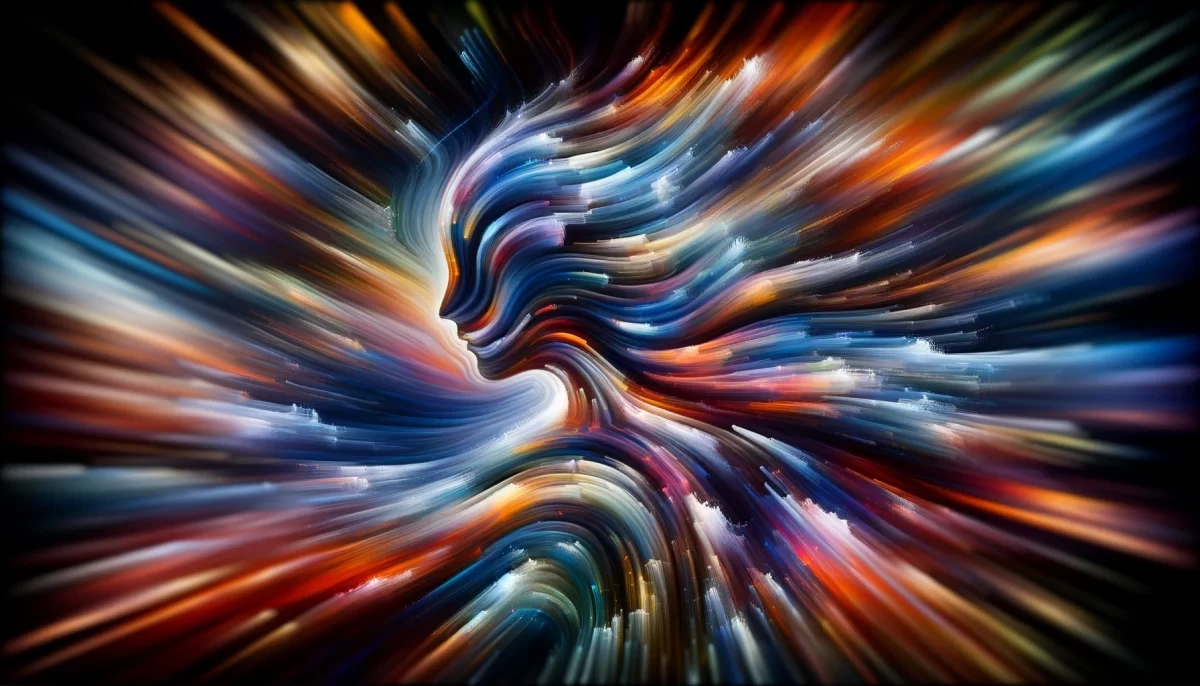

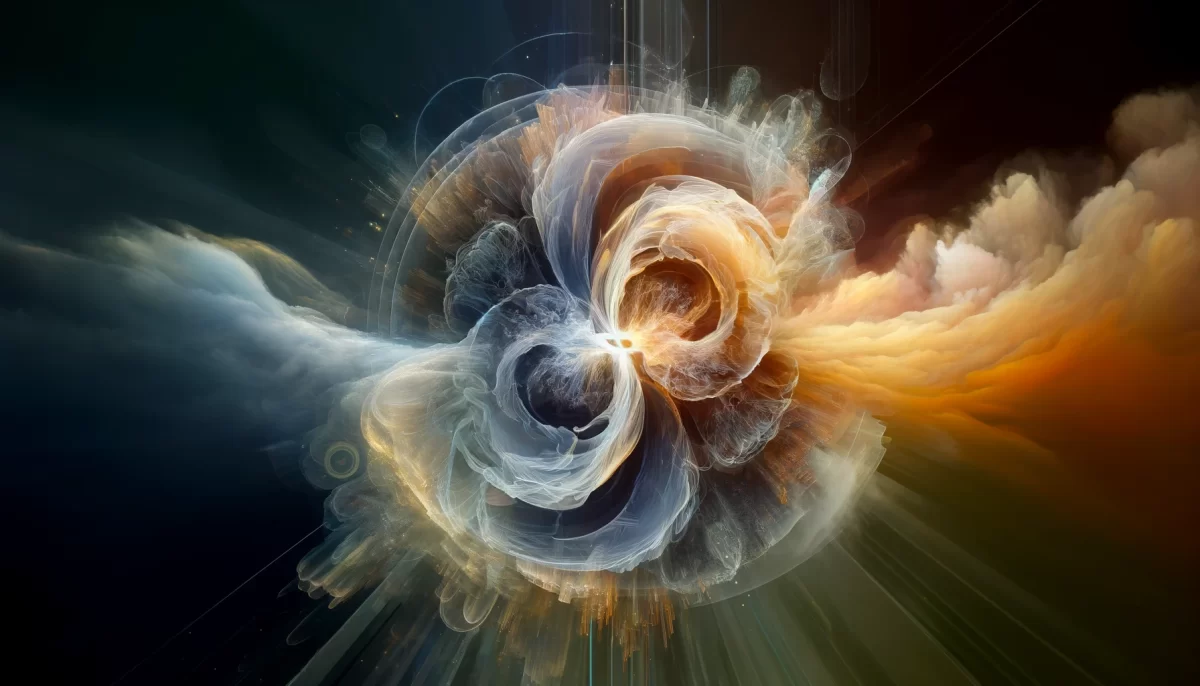

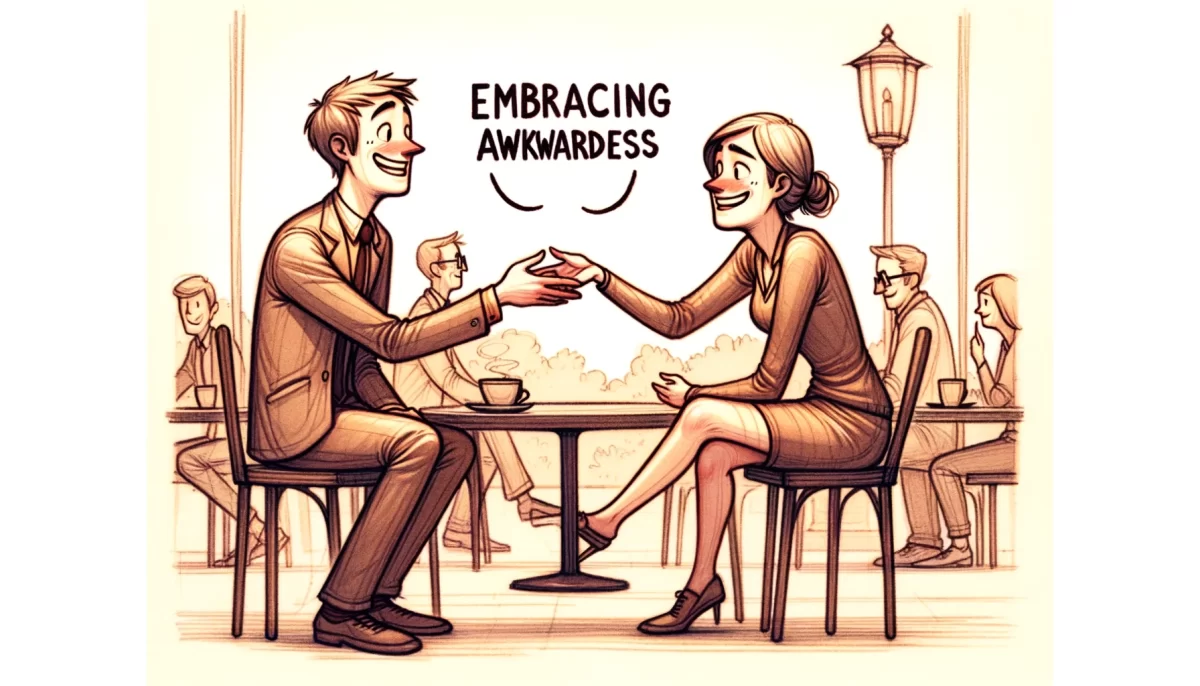
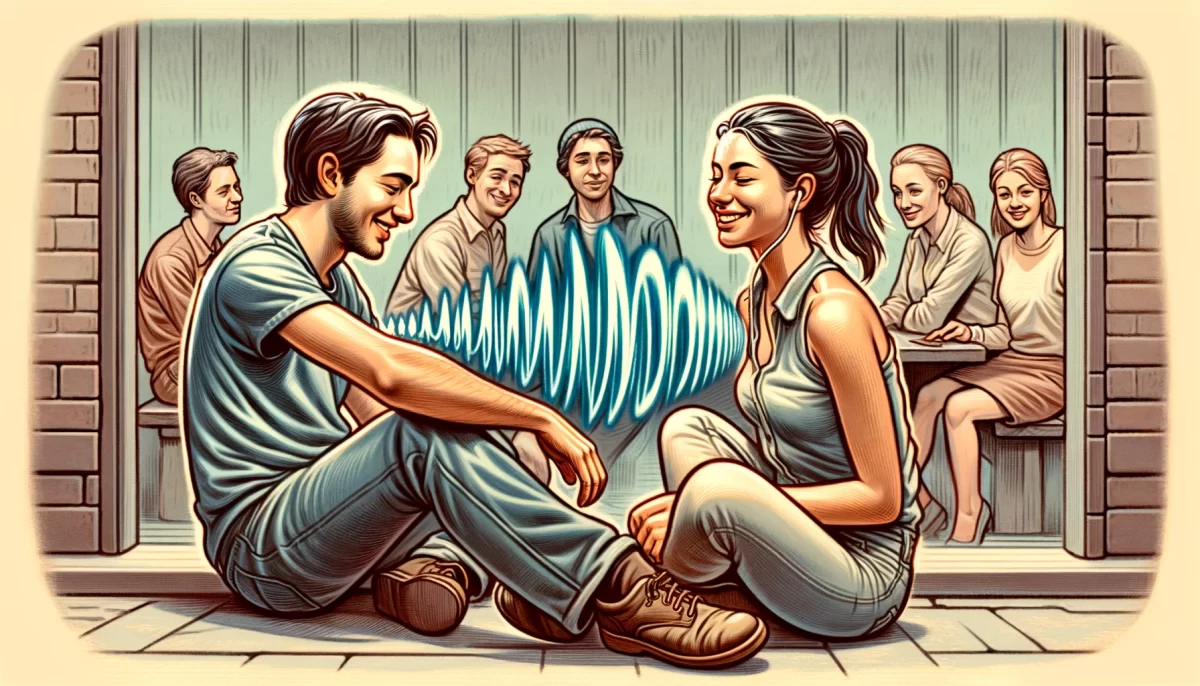
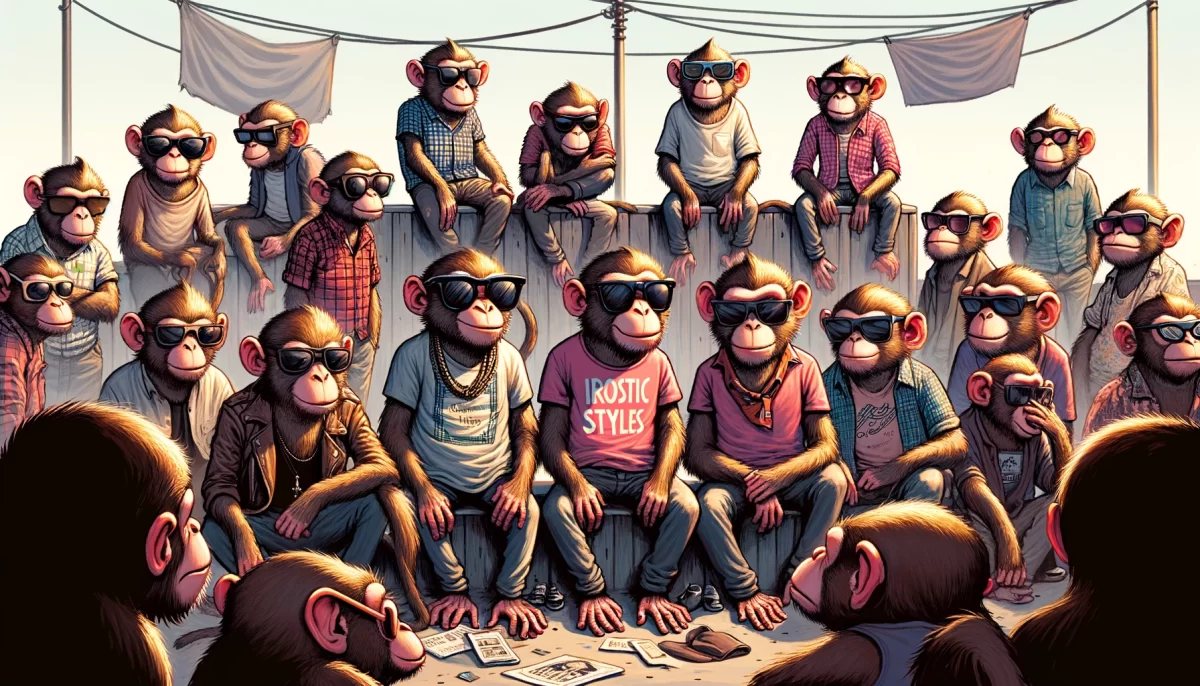




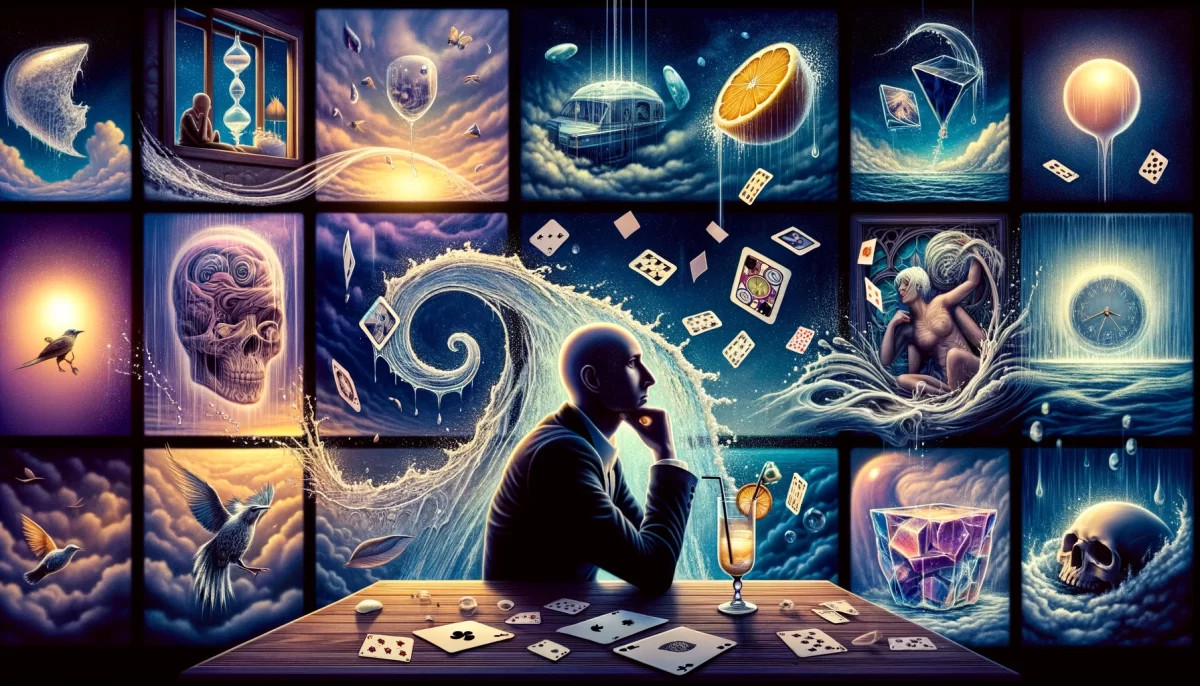







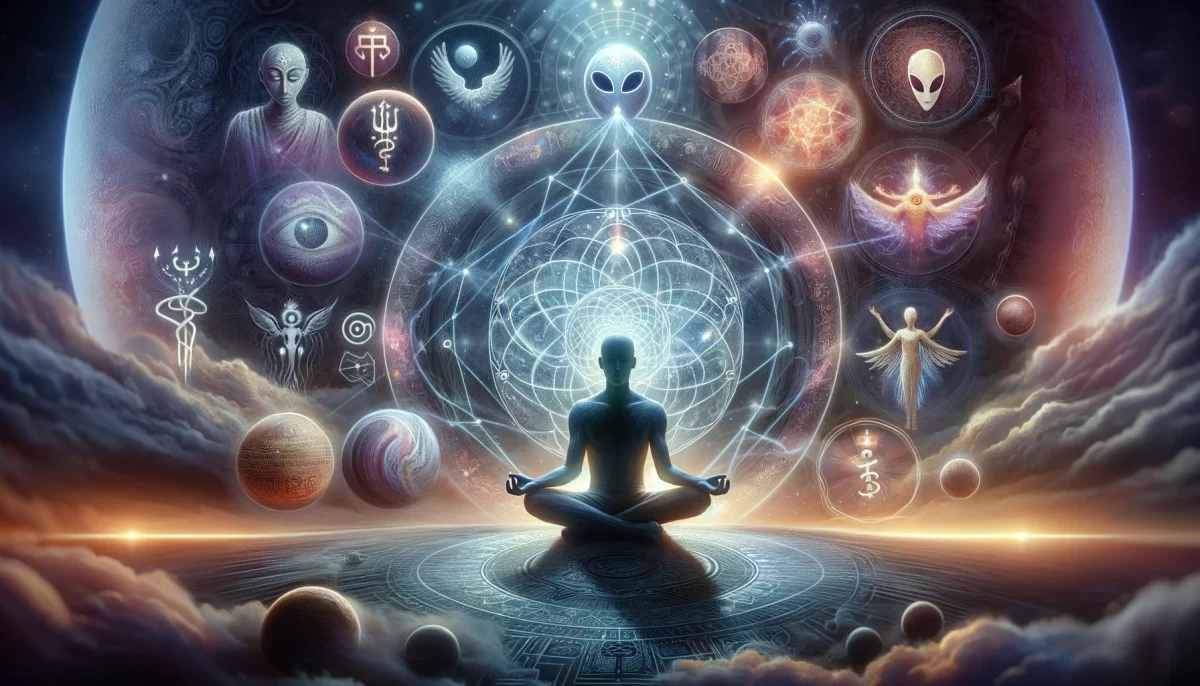


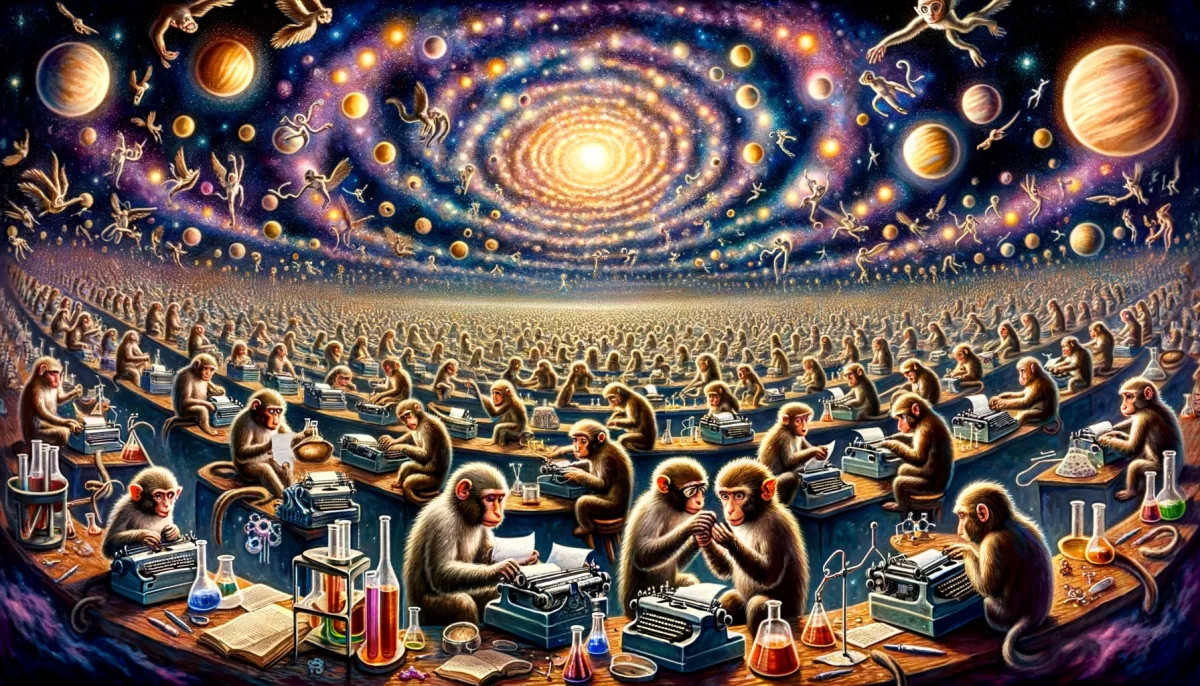
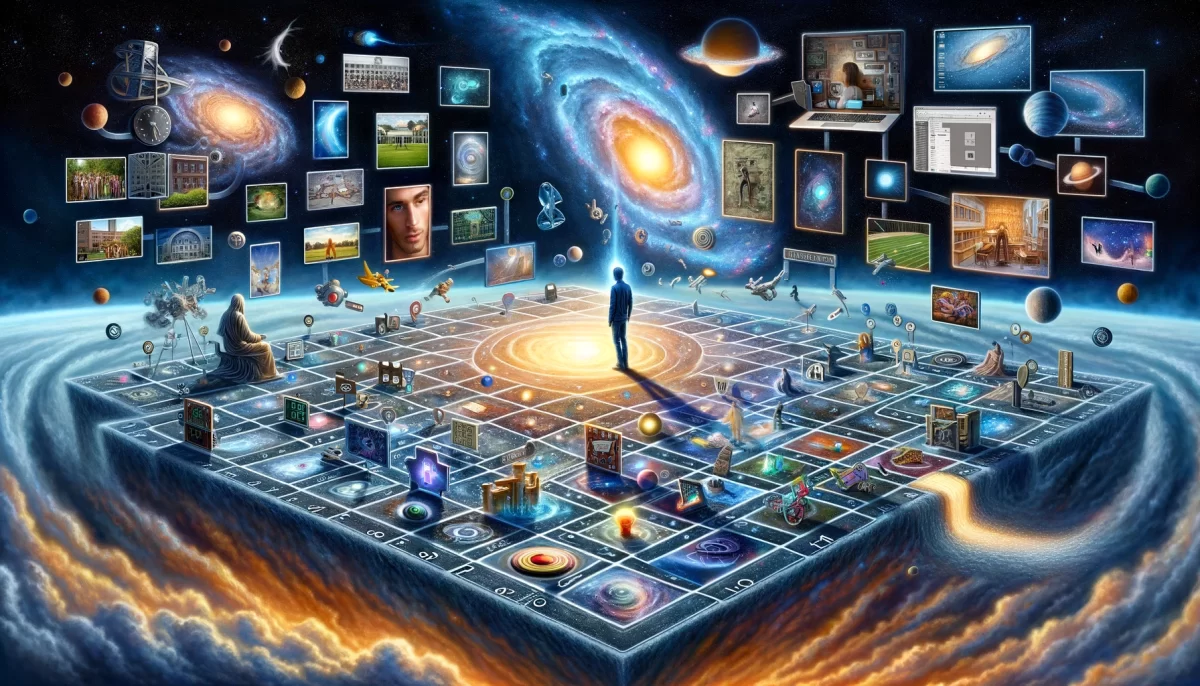

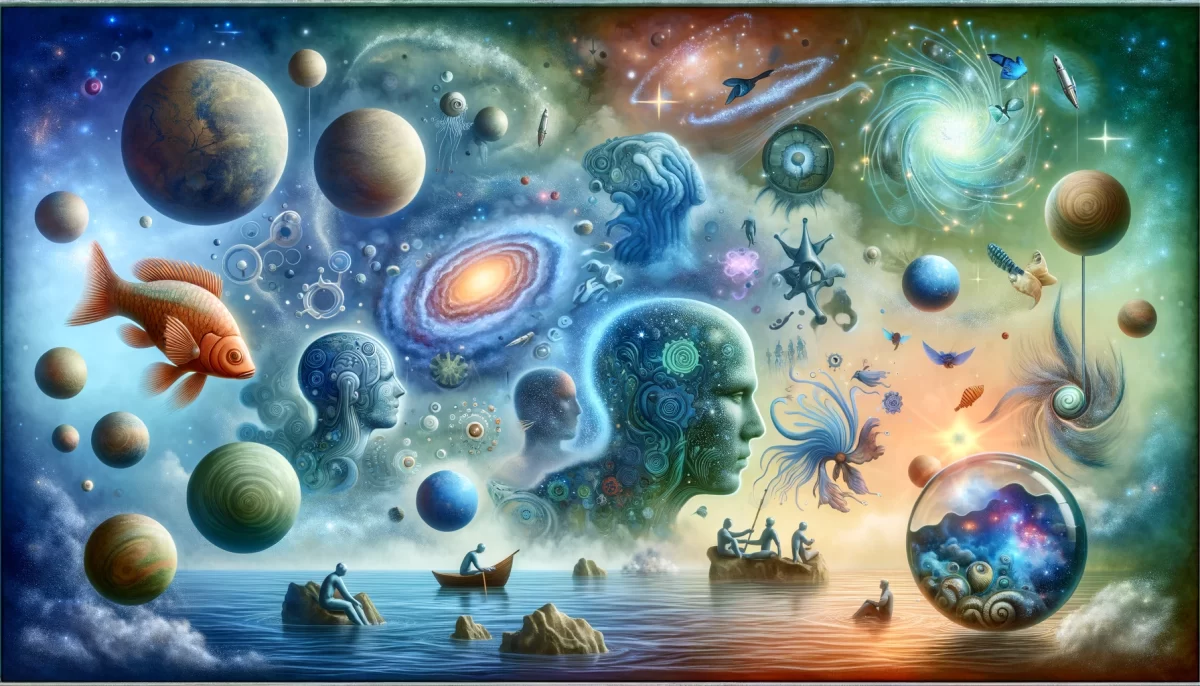
Leave a Reply